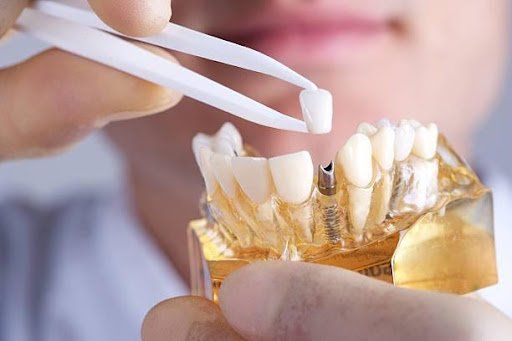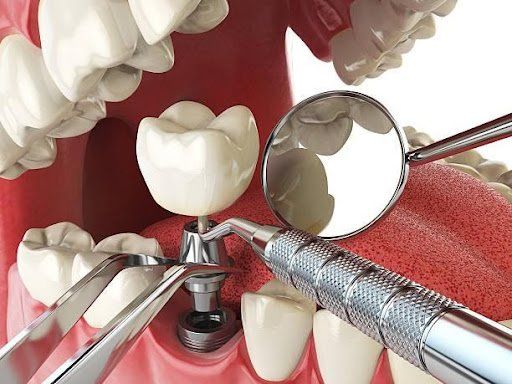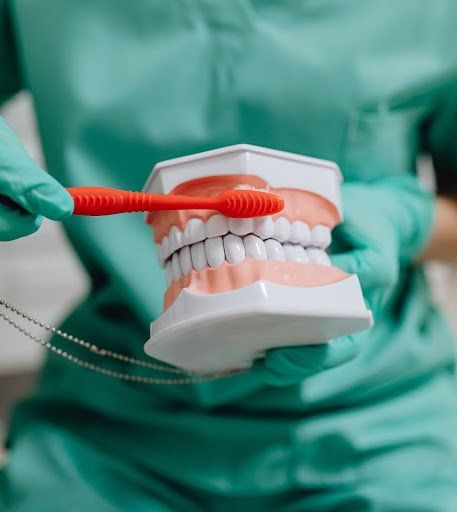Things You Must Know About Dental Implants
- by Milena Marguenski
- •
- 11 Dec, 2021
- •

Epidemiological studies show that about 178 million Americans are missing at least one tooth. There are more than 40 million Americans who are missing all their teeth.
Shocking, isn’t it?
But the question is, why are they not going for dental implants?
Well, there are many reasons but the most common is lack of awareness.
If you are one of those who don’t know much about dental implants in Brooklyn NY, here is a complete guide for you.
What are Dental Implants?

Dental implants are artificial structures made of titanium and are used to replace missing teeth. These surgical fixtures are placed into the jawbone beneath your gum line by a dental surgeon. They are then allowed to fuse with the bone for a few months.
In simple words, they act as artificial roots or anchors for the crown (artificial tooth). An abutment is used to connect an artificial tooth to the dental implant.
Types of Dental Implants
There are 3 common types of dental implants:
- Endosteal Implants: These are the most commonly used dental implants. Endosteal implants are done in the bone. These are shaped like screws and act as placeholder posts for artificial teeth. They require some time for fusion and creating a stronghold. Once healed, false teeth can be placed easily. They can suit most of the patients as their common requirement is to have a healthy jawbone.
- Subperiosteally Implants: These are an alternative to endosteal implants. They differ in the way that they rest on top of the bone under the gum. A metal frame with a post attached to it is placed under the gum. The gums heal with time and hold the frame in its place. At last, the false teeth are secured to the poles that arise from the gum. This procedure is used when the jawbone falls short for an implant. In another case, it is the patient who doesn't want to go for oral surgery in which bones are added to the area.
- Zygomatic Implants: They come in the category of most complicated implants. This procedure is only adopted when there is not enough jawbone available for endosteal implants. This implanting is placed in the cheekbone and not on the jawbone. It demands more care.
How successful are Dental Implants?

Dental implants are more successful as compared to other available techniques. They carry a success rate of 98%
and can last for a lifetime. All you need is to maintain good oral hygiene.
Advantages of Dental Implants
Dental implants are one of the best ways to replace your missing teeth. They carry several advantages -
- Improves Appearance: They look and feel like natural and permanent teeth.
- Improves Speech: With dentures, your teeth can slip within the mouth. This can lead to mumbling. Dental implants have no such issue.
- Comfortable: They become your part thus making you feel comfortable while using them during eating.
- Improves Oral Health: Although they are artificial but don't demand alteration of nearby teeth. They provide easy access between teeth thus helping in improving oral hygiene.
- Durability: They are highly durable and last for years.
Now you must have a clear-cut idea about dental implants. So free up your mind and go for dental implants in Brooklyn NY without any fear.


Brooklyn residents often wonder whether their tap water is helping or harming their dental health. One key factor in this debate is
fluoride
, a naturally occurring mineral added to public water supplies to prevent cavities. But does Brooklyn tap water really protect your teeth from decay? In this blog,
we’ll
uncover the truth about fluoride levels in NYC’s water and whether it plays a significant role in cavity prevention.

Sudden gum swelling is a dental condition that requires immediate attention, even if there is no pain. Gum health is often overlooked, but it is essential for overall oral well- being. Swollen gums may seem harmless at first, but they often indicate underlying issues that can worsen if left untreated.
Many people think of dental emergencies as situations with severe pain, but it's important to understand that discomfort isn't always a reliable sign of serious problems. Just because there is no pain doesn't mean there is no risk. Sudden gum swelling should be treated as an emergency , emphasizing the need for prompt professional evaluation.
Ignoring swollen gums can lead to more severe complications, affecting both oral health and general wellness. By understanding the seriousness of this condition and
seeking timely intervention, you can prevent further damage and ensure that your gums—and teeth—stay healthy and strong.
A skilled dental team can properly assess and treat any swelling. Prioritize your gum health by taking action when you notice unusual changes, protecting your smile for the future.
It's important to remember that maintaining good oral hygiene, including flossing your teeth regularly , can help prevent conditions like gum swelling. Additionally, if you're interested in improving your smile beyond just addressing gum issues, there are various options available in cosmetic dentistry that you should know about. Finally, if you're looking for ways to achieve a brighter smile, there are effective methods on how to get whiter and brighter teeth at home that you might find helpful.

If you thought that oral health problems are only for adults, then think again. The first teeth start appearing by 4 to 5 months of age. Then by the age of 3, kids have a full set of teeth. This is the time when parents have to be extremely careful about oral hygiene.
By the age of 6-7, the primary teeth start to fall out to make space for the permanent teeth. These permanent teeth are the ones that will stay with them for the rest of their lives. However, there are certain oral problems such as tooth decay, lip sucking, and early teeth loss.
Let’s take a look at these common oral health problems.

With the procedures’ popularity, several pharmaceutical companies launched their over-the-counter teeth whitening kits. This made the procedure more accessible and cheaper as compared to a professional session.
But which one is better? Let’s understand both the procedures first.





